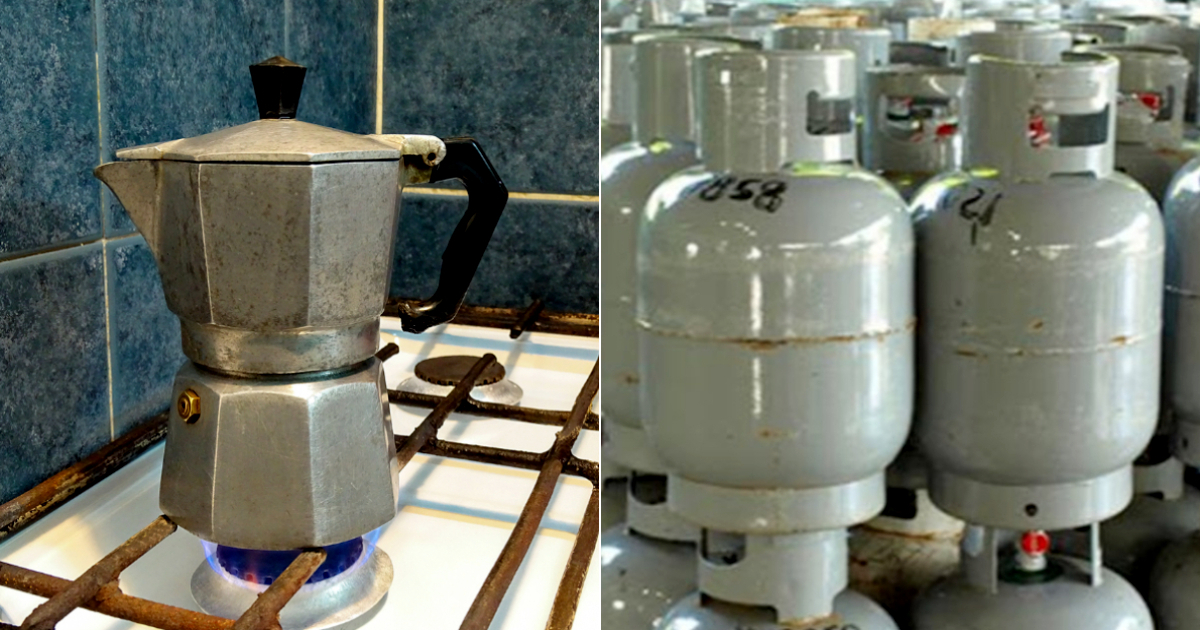
The Cuba-Petroleum Union (CUPET) announced to its customers the resumption of rationed sales of liquefied gas thanks to the arrival of a shipment of this fuel at ports in Santiago de Cuba and Havana.
"The sales service will be gradually restored in the western and eastern provinces, and later in the central region. Sales to the population will be maintained during extended hours until distribution stabilizes," the state-owned company stated in a press release.
The distribution and sale of this product - highly demanded in Cuban households with gas stoves - was paralyzed. In many Cuban households without electric stoves (also affected by blackouts), the scarce food available to the population has started to be cooked with wood or charcoal.
At the end of May, authorities in Santiago de Cuba announced the sale of charcoal to the population "as an alternative to the energy deficit and fuel situation" in the country.
In its informative note this Friday, CUPET offered "apologies for the inconvenience caused," but did not detail the extent of them. It also did not provide data on Cuban households that were awaiting the sale of liquefied gas, nor the length of time they went without fuel supply.
Despite this opacity, the state socialist company committed to "keeping the population informed about the daily distribution program and other issues of interest through the Telegram channels of each territory."
After the first half of May had passed, the CUPET Company in Matanzas informed its customers that they did not have liquefied gas available for sale to the population.
In a brief note published through the Facebook profile of the provincial government of the People's Power in Matanzas, the residents of that province were officially informed of the lack of fuel, although -apparently- they had been experiencing the shortage before the notification, which is why many of the residents of Matanzas responded indignantly to the official statement.
"We already know that. Since the 6th, I should have gas, and God knows when they will sell it to me. There is no electricity to cook food for children, the elderly, and families in general. What do we cook with? Because we don't even have firewood. When will we receive encouraging news for this suffering town?" a woman from Matanzas said.
At the beginning of 2024, the Cuban regime increased the price of liquefied gas by 20 percent. Customers who used to pay 180 CUP for the canister started paying 225 Cuban pesos for 20 pounds of liquefied gas as of March 1st.
Prior to the entry into force of the "economic ordering" in Cuba, in January 2021, CUPET announced that it would increase the price of liquefied gas from 110 to 213 pesos.
However, in March 2021, the man known as the "zar of reforms," Marino Murillo Jorge, admitted that the discontent of the population with the measure forced the government of Miguel Díaz-Canel to backtrack and set the price of a gas canister at 180 Cuban pesos.
Without having raised wages, with skyrocketing inflation, and with the Cuban currency much more devalued than three years ago, the same government now decides to raise the price of liquefied gas again. And it places it not at the 213 CUP of its 2021 calculations, but at 225 Cuban pesos.
"Liquefied gas is another product whose price is rising," acknowledged Minister of Energy and Mines, Vicente de la O Levy, on the Roundtable. "This is a very efficient way of cooking, which saves on electricity fuel, but LPG [liquefied gas] in Cuba is completely imported."
According to the minister, liquefied gas was an energy source with subsidized prices in Cuba. The 20% increase in its price (45 CUP) was not aiming for anything other than "correcting a distortion": namely, eliminating an undue subsidy that the State cannot continue to maintain due to the financial difficulties caused by "the blockade."
What do you think?
COMMENTFiled under: